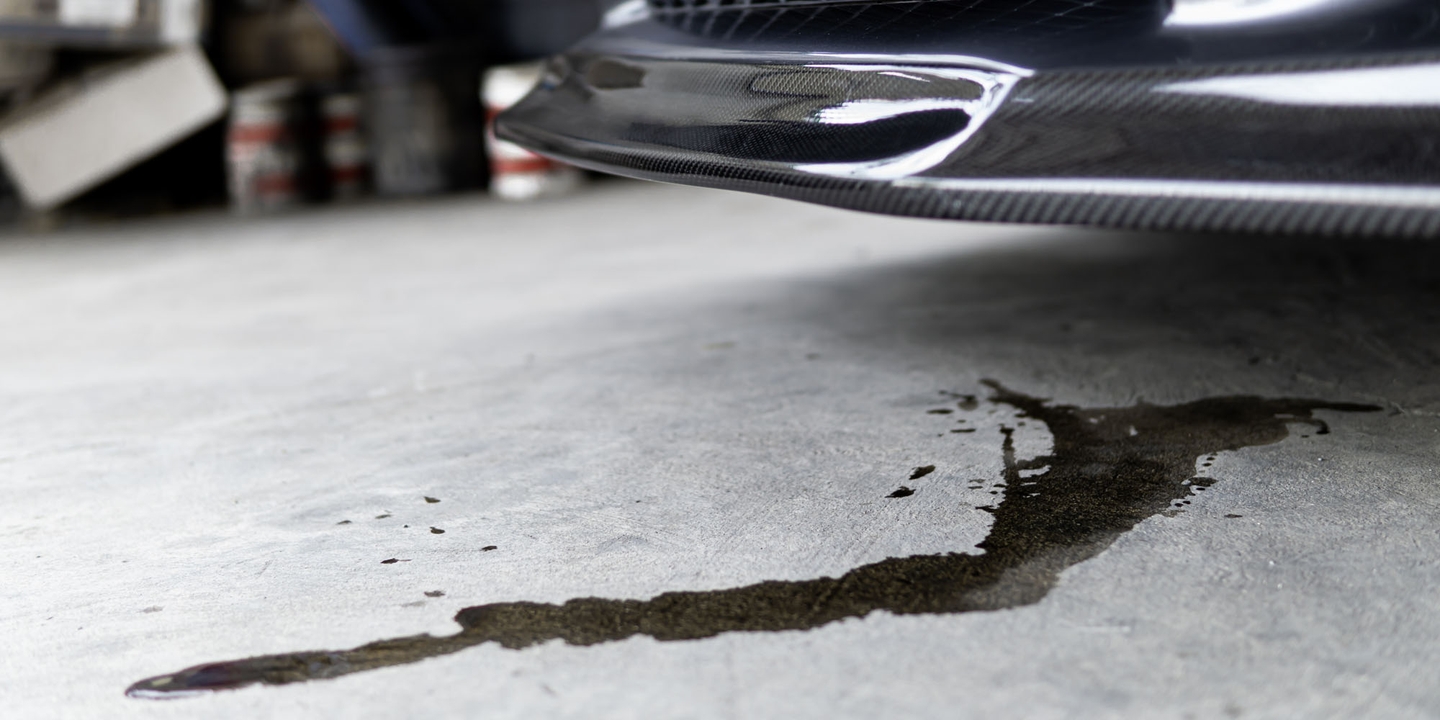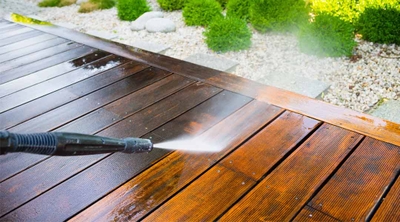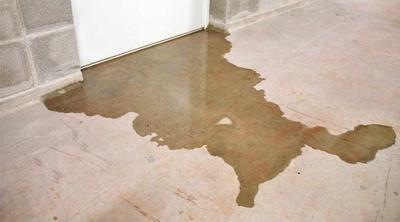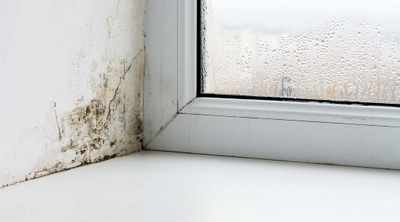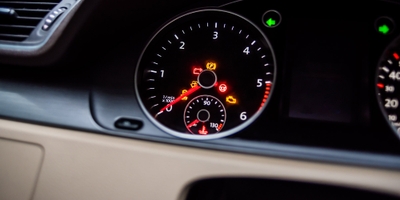How to remove oil stains from a driveway
3 min read
Whether your vehicle is leaking oil, brake fluid, or power steering fluid, essential automotive fluids can damage your driveway by leaving unsightly stains behind. If you want to clean oil from your driveway effectively, you’ll have the best luck if you catch them quickly and use the right products. Jonathan Gunther, co-founder of Brakes to Go, a mobile brake repair company in Texas, tells us how.
How do I soak up oil and other automotive fluids?
To soak up the excess motor oil or fluid, you should spread cat litter over the fresh stain and let it sit for several minutes. In addition to soaking up the excess fluid, the cat litter will minimize the stain by pulling fluid out of the cement. After you’ve soaked up as much as you can, sweep the cat litter into a bag and dispose of it properly.
How do I clean oil off of my concrete driveway after soaking up excess fluid?
If a stain remains after collecting the excess liquid, or you want to remove an older stain, you have a few options. You can start by dousing the spill with dish soap and water to remove oil from the driveway. “We’ve all seen the dish soap commercial where they’re cleaning the little birds from oil spills,” says Ganther. “Hopefully, if the stain is new enough, the dish soap eats through it and gets it out.”
If using dish soap doesn’t work, you can try spraying the stain with oven cleaner, WD-40, or a mixture of bleach and water and letting it soak for a few minutes. Then scrub it with a brush or a piece of steel wool and repeat the process until the stain is gone. Ganther warns that you should be careful not to spread the oil around and make the stain worse during this process.
How do I clean up brake fluid from concrete?
You can remove power steering fluid or brake fluid from your driveway with the same detergent and solvents used to remove oil stains from the driveway. Ganther notes that it can often be easier to remove stains from brake and steering fluids because the stains are lighter in color than the oil.
What about asphalt driveways?
If your driveway is asphalt instead of concrete, it’s probably best to skip the solvents because they may lighten your driveway. “I don’t know if I would use anything other than dish soap on asphalt. The other solvents [can] bleach or color. You’d make the black driveway look worse,” says Ganther.
What happens if I leave an oil stain on the driveway?
The longer an oil stain sits on a driveway, the harder it will be to remove it. If you see any oil stains on the driveway, act quickly. Follow the steps above to remove as much of the stain as fast as possible. Time is your enemy, because the oil or other fluid can penetrate the surface and make removing oil from concrete a nearly impossible task. However, don’t panic — and make sure you’re using the proper techniques to get the best results.
Tips to prevent oil stains on the driveway
Obviously, the best way to keep your driveway clean is to prevent oil stains from happening in the first place. Trying to clean oil off the driveway is potentially labor-intensive, so preparation is key. Make sure your car is up-to-date on maintenance and that your automotive systems don’t have any leaks. Consider putting down a tarp in your driveway, or even parking in the street after an oil change as extra fluids could drip down onto the parking surface. And if you change your vehicle’s oil yourself, be sure you have all the necessary equipment within reach before you start. Learn how to check car fluids and how to check for car leaks.
How do I dispose of products used to clean oil off a driveway?
If you’re using products that are stronger than dish soap, they may contain harsh chemicals that may be harmful to the environment. You shouldn’t allow them to run into the grass or down the sewer. If you have oil-soaked rags, you shouldn’t throw them in the trash. “You have to take them to a recycling center or hazardous waste center. You’re not supposed to clean up oil and just throw it away,” says Ganther.
According to the Environmental Protection Agency (EPA) the disposal of household hazardous waste is regulated by state and local authorities. Check with the Department of Environmental Protection (DEP) in your state before disposing of any products.
